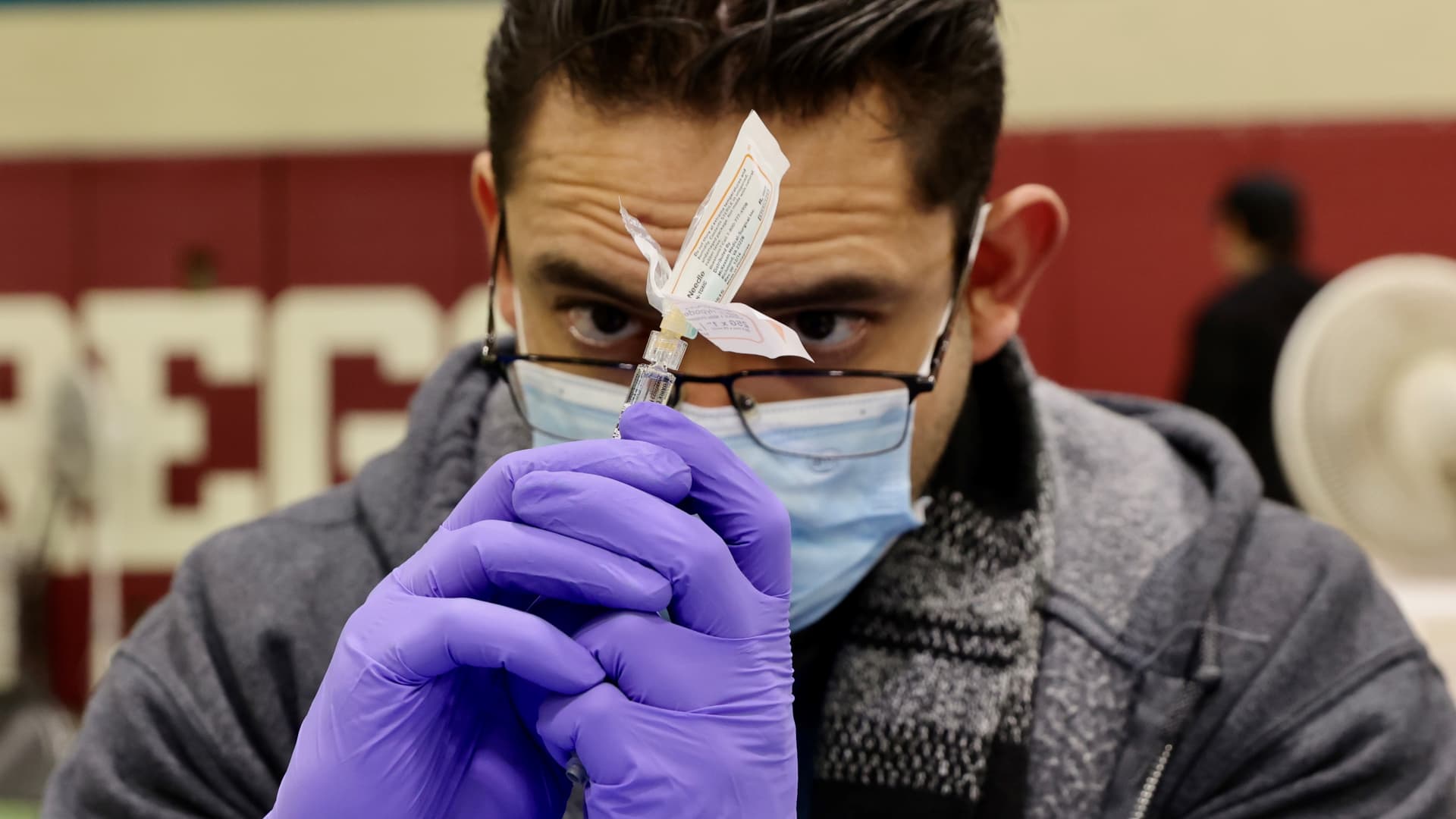People who receive Pfizer‘s RSV vaccine for older adults should be monitored for Guillain-Barre syndrome, after two people developed the nervous system disorder after they received the shot, scientists said in clinical trial results published in the New England Journal of Medicine.
The scientists concluded the vaccine was effective in preventing lower respiratory tract illness in adults ages 60 and older without any evident safety concerns. But they flagged the Guillain-Barre cases as a potential cause for concern moving forward.
“If RSVpreF vaccine is approved and recommended, these adverse events warrant close monitoring in future studies and with real-world data and postmarketing surveillance,” the scientists wrote. The study, which published Wednesday, was supported by Pfizer.
Guillain-Barre syndrome is a rare disorder in which the body’s immune system mistakenly attacks the nerves. Symptoms can range from brief weakness to paralysis, according to the National Institutes of Health. Most people recover, even from severe cases.
The scientists’ call for close monitoring for a possible link between the vaccine and Guillain-Barre echoes the position of the Food and Drug Administration.
The agency has asked Pfizer to include Guillain-Barre as an “important potential risk” of the vaccine and develop a safety study to monitor for potential cases if the shot is approved in May. Pfizer has agreed to conduct a safety study.
The FDA’s independent advisors endorsed the vaccine in February, though there was substantial dissent during that meeting. Seven advisors said the safety data was adequate for an approval, while four said it was not and one abstained.
In the New England Journal of Medicine article, the scientists said the two cases occurred in patients who were in an age group that has an increased risk of developing Guillain-Barre. Potential factors other than the vaccine also could have caused the individuals to develop the syndrome, they added.
But the FDA said the agency views the Guillain-Barre cases as possibly related to the vaccine because the patients developed the syndrome shortly after receiving the shot, according to briefing documents published in February. Pfizer concluded that the cases were unrelated, and the clinical trial’s data monitoring committee did not identify any safety concerns with the vaccine.
Pfizer’s shot is in the running to become the first RSV vaccine ever approved for older adults. RSV kills between 6,000 and 10,000 seniors every year, according to the Centers for Disease Control and Prevention. It also causes 60,000 to 160,000 hospitalizations among the age group annually.
The vaccine was 86% effective at preventing lower respiratory tract illness with three or more symptoms, and 66% effective at preventing the illness with two or more symptoms, according to the results published in the New England Journal of Medicine. The shot is administered as a single, 120-microgram dose.
While the shot promises to reduce hospitalization and death from RSV among seniors, the FDA’s advisors were concerned about the Guillain-Barre cases during their meeting in February.
Dr. Hana El Sahly, the FDA committee chair, said Guillain-Barre has an incidence of about 1 in 100,000 among people ages 60 and older. But in the vaccine trial, the rate was more like 1 in 9,000.
“So this is major if we take it at this level,” El Sahly said. She acknowledged there’s still uncertainty about what the actual rate of the disease would be among vaccine recipients.
“But nonetheless, it’s significant in terms of incidence,” she said of the two cases. The advisors who endorsed the vaccine also said safety monitoring will be crucial after any potential FDA approval.
A 66-year-old man in the U.S. developed Guillain-Barre, and a woman of the same age in Japan was diagnosed with a variant of the syndrome called Miller Fisher. The patients developed symptoms seven and eight days after vaccination, respectively.
The man had a history of hypertension and suffered a heart attack shortly before he was diagnosed with Guillain-Barre, and the woman had history of diabetes. The FDA does not view the heart attack as related to the vaccine.
The man’s symptoms were resolving six months after onset, and the woman’s symptoms resolved completely 3 months after onset.
